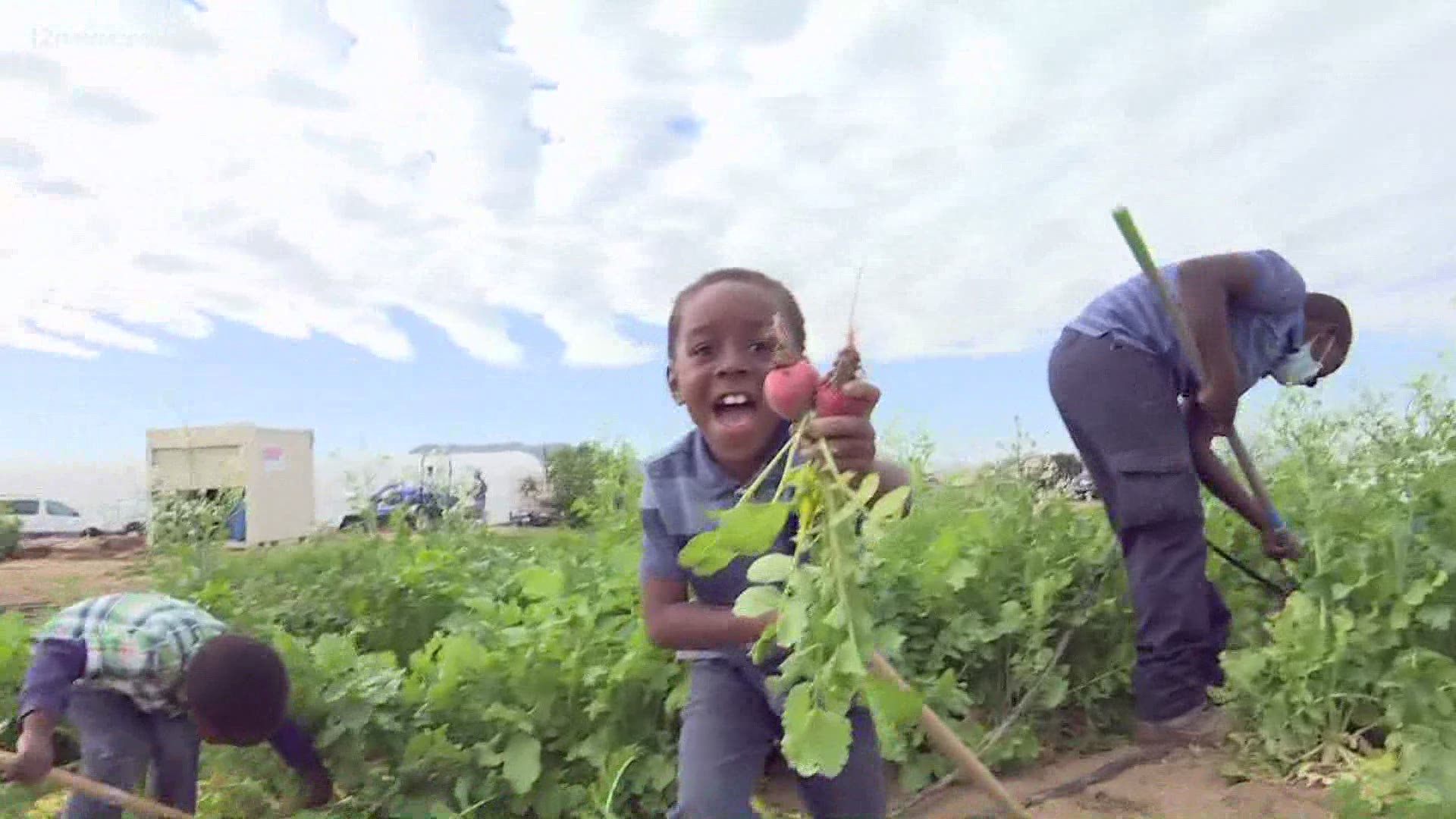PHOENIX — On a 19-acre plot of undeveloped land sits an urban farm that offers a vital service to its community: Fresh food in the middle of a food desert.
There is little in the way of grocery stores for those living near 19th Avenue and Baseline Road. Other than a Food City at the corner of Seventh and Southern avenues, there are no stores for miles.
The farmer’s market held every Saturday morning is a lifeline for residents in the area looking for fresh food.
Starting in 2015, community organizations rallied together to turn the plot of land into an urban farm called Spaces for Opportunity. Six years later, the farm is a vibrant part of the neighborhood, offering educational opportunities, an economic engine for micro farmers and a place for individual gardeners to come together.
The education this land provides
Located across the street from V.H. Lassen Elementary School, Spaces of Opportunity partners with the school to provide education and nutrition to the students. A portion of the food grown at the farm is brought to the school to bolster their culinary class and stock their Healthy Roots Café, a restaurant run by students under the supervision of a master chef. Since the pandemic hit, Healthy Roots Café has relocated to the Spaces of Opportunity Farmer’s Market.
Spaces of Opportunity hosts a climate controlled vertical growing space, called the High Tunnel. The Tunnel allows student to grow foods on the farm year-round.
“One thing we are excited for is utilizing this tunnel- about 3000 square feet of growing space- as a field lab for the local students that come through from different schools,” said Sowan Thai, the co-director of Orchard Learning Center and one of the driving forces behind Spaces for Opportunity. “
It’s going to offer them a different perspective of growing. We have 19-acres that’s pretty much open land. Being able to grow in an area that is more of a controlled environment, opens up a lot more opportunities.”
Farming to making a difference
When Rodney Machokoto moved to America from Zimbabwe, his home country had been ravished by food insecurity. Machokoto met his wife while the two worked on a project to rebuild the country’s deteriorating waste management system.
Machokoto is now working on his PhD in community development and sees Spaces of Opportunity as a perfect example of what communities can do to combat food insecurity.
“So now, not only our commitment individually, but I know everybody else here, is to trying to bring in the best quality of food, with no pesticides, no chemicals, to families regardless of their income status,” Machokoto said. “So, this is really an example what we hope can happen in other cities and even other countries.”
Machokoto spent seven years apart from his now wife while he received an education at Arizona State University. Now, the two are teaching their two young sons how they can make a difference by working the land.
“When our boys came along, we wanted to teach them, as well, that we can have fun, plus we can be contributing to society at the same time," Machokoto said.
Machokoto and his family estimate that they grow roughly 200,000 pounds of fresh produce on his plot of land within Spaces of Opportunity each season.
Community involvement
“Spaces of Opportunity is a really special place; it brings together residents from the local neighborhoods here in south Phoenix, a variety of non-profit partners and then the broader community; organizations like Sprouts and other to really think about how we address community health and wellness from the ground up," said Lyndsey Waugh, the Executive Director of Sprouts’ Healthy Communities Foundation.
Sprouts Healthy Community Foundation bestowed $100,000 to Spaces of Opportunity on an episode of Ellen, allowing Ellen DeGeneres to cast her spotlight on the urban farm.
“Sprouts partners with organizations all across the country that are working to build a more equitable food system,” Waugh said. “So, what that looks like is programs such as Spaces of Opportunity that provide an access point for communities to increase access to fresh, healthy produce. Or it might mean working with elementary students to help them understand where their food comes from and develop a good understanding of what healthy food is.”
Every Saturday, Spaces for Opportunity holds a farmers’ market from 9 a.m. to 1 p.m. Food grown by micro farmers are sold at the market benefiting both the community and the farmers.

